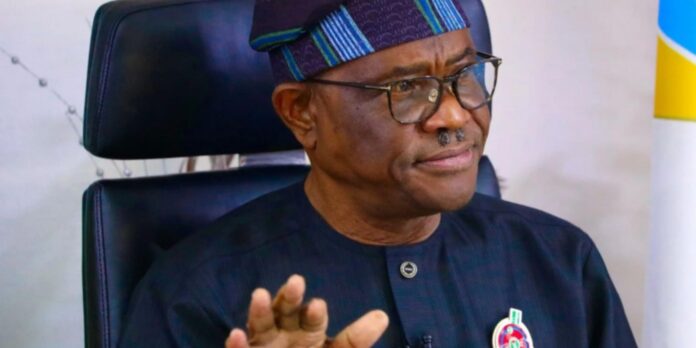LAGOS: Human rights activist and former presidential candidate, Omoyele Sowore, has formally petitioned the Office of the Attorney General of Florida, James Uthmeier, alleging that Nyesom Ezenwo Wike, Nigeria’s current Minister of the Federal Capital Territory (FCT) and former governor of Rivers State, secretly acquired real estate in the United States with laundered Nigerian public funds.
Sowore, who is also the convener of the #RevolutionNow movement, revealed that three properties located in Winter Springs, Florida, were traced to Wike but were deliberately concealed under the name of his wife, Justice Eberechi Suzzette Nyesom Wike, a serving judge at Nigeria’s Court of Appeal.
He alleged that the houses were distributed among the couple’s children to create the façade of legitimate family assets, while in reality, they were funded with proceeds of corruption.
In his statement, Sowore described the transactions as first-class felonies under U.S. law, stressing that the laundering of illicit wealth across international borders undermines both Nigeria’s anti-corruption framework and American financial regulations.
It turns out that international thief Nyesom Wike has three different properties in Winter Springs, Florida. All of them were hidden under the name of his wife, who is a Court of Appeal judge in Nigeria, and shared out to his children.
There may be even more properties, but we are making progress, Sowore declared.
He confirmed that he had written directly to Attorney General James Uthmeier, urging U.S. authorities to investigate and prosecute the matter, which he said amounted to trafficking stolen wealth into America’s property market.
Sowore highlighted that this case fits into a larger pattern in which Nigerian political elites funnel stolen public funds into foreign real estate, often masking them as legitimate investments or family inheritances.
According to him, the exposure of Wike’s alleged U.S. assets is not an isolated incident but a reminder of how deeply entrenched corruption has become among the ruling class.
Year after year, billions of dollars meant for schools, hospitals, and infrastructure in Nigeria end up in offshore accounts or foreign luxury homes. The tragedy is that while ordinary Nigerians suffer poverty, those who loot the treasury live in opulence abroad, Sowore said.
Wike, who has long been a controversial political figure, recently dismissed speculations about his health, saying he only travelled abroad for a holiday his first since assuming the FCT portfolio.
Addressing an audience at a public event, he dismissed claims that he had been hospitalised, calling them lies spread by social media.
He further attacked Sowore indirectly, accusing him of persistently criticising President Bola Tinubu and warning that not all leaders would tolerate such dissent.
Sowore is lucky that President Tinubu is a tolerant man. Under another administration, he might not have such freedom, Wike remarked.
The minister has, however, not directly addressed the specific allegations concerning the Florida properties.
Sowore’s petition comes against the backdrop of his own running battles with Nigerian authorities. Over the years, he has been arrested multiple times, charged with treasonable offences, and placed under surveillance for organising protests against corruption and misgovernance.
Currently, he is engaged in a legal tussle with the Department of State Services (DSS), which has sought to pressure social media platforms to remove some of his posts critical of government officials.
Sowore has resisted this move, filing a lawsuit arguing that the agency’s actions amount to censorship and violate his right to free expression under Nigeria’s constitution.
By escalating the matter to the U.S., Sowore is attempting to internationalise the fight against corruption, arguing that Nigerian leaders who steal public wealth should not find safe havens in foreign jurisdictions.
His petition could trigger U.S. authorities to examine property records, financial trails, and possible violations of anti-money laundering laws.
Legal experts say if the Florida Attorney General’s office takes up the case, it could open the door for asset forfeiture, criminal charges, or broader investigations into how Nigerian political figures move illicit funds abroad.
The allegations, if substantiated, add to growing concerns about the credibility of Nigeria’s political leadership.
They reinforce the perception that government officials use their positions not only for domestic patronage but also to amass wealth that is hidden in overseas properties.
For Sowore, the stakes are high. He has long positioned himself as an anti-corruption crusader, often at great personal risk.
His petition against Wike represents both a direct confrontation with one of Nigeria’s most powerful politicians and a test of whether U.S. authorities will act against foreign officials accused of corruption on their soil.
Despite facing arrests, court cases, and threats, Sowore insists he will continue exposing what he describes as systemic looting by Nigeria’s political elite.
There may be more properties. We will not stop until accountability is achieved,” he vowed.



